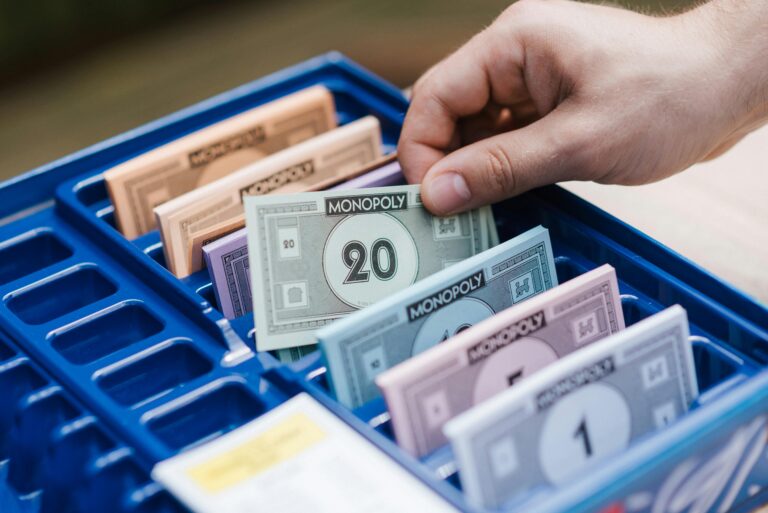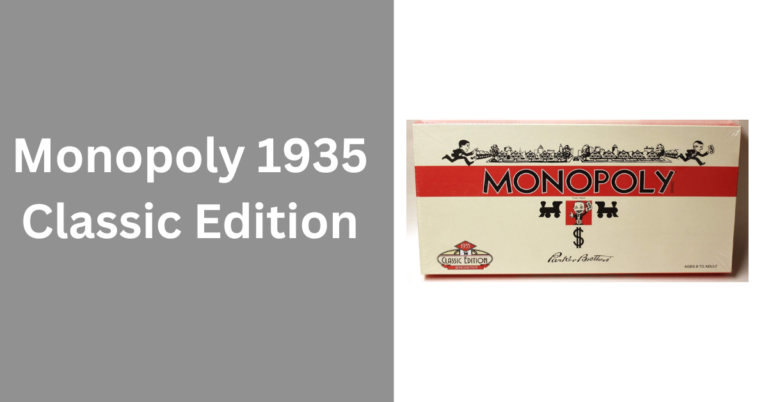Income Tax in Monopoly – How to use it as a Game Changer?
If you’ve ever sat around a table with friends or family to engage in the timeless game of Monopoly, you know the thrill of buying properties, building hotels, and collecting rent. But as in real life, Monopoly isn’t about financial gains and strategic investments.
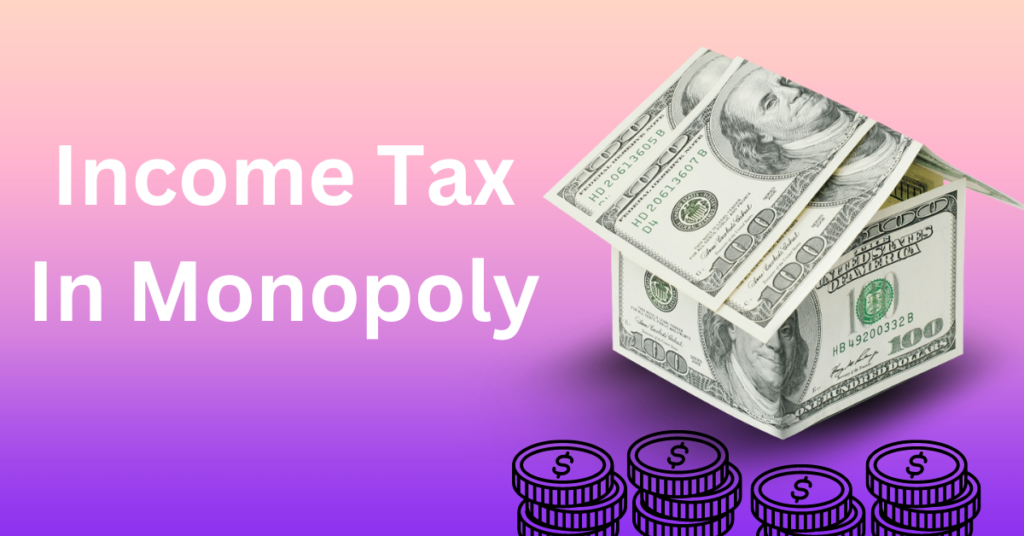
One of the pivotal moments that can either make or break your game comes when you land on the Income Tax space. This seemingly straightforward spot can have profound implications for your overall strategy and eventual success.
What is Income Tax in a Monopoly?
When you land on the Income Tax space, you’re presented with a choice that echoes real-life financial decisions: pay a flat fee of $200 or 10% of your total assets. This includes your cash on hand and the value of your properties and houses. This mechanic introduces a layer of financial strategy that can disrupt even the best-laid plans.
Early in the game, when your assets are relatively few, the decision might be straightforward. However, as the game progresses and your wealth increases, calculating the exact percentage can become a bit more complex.
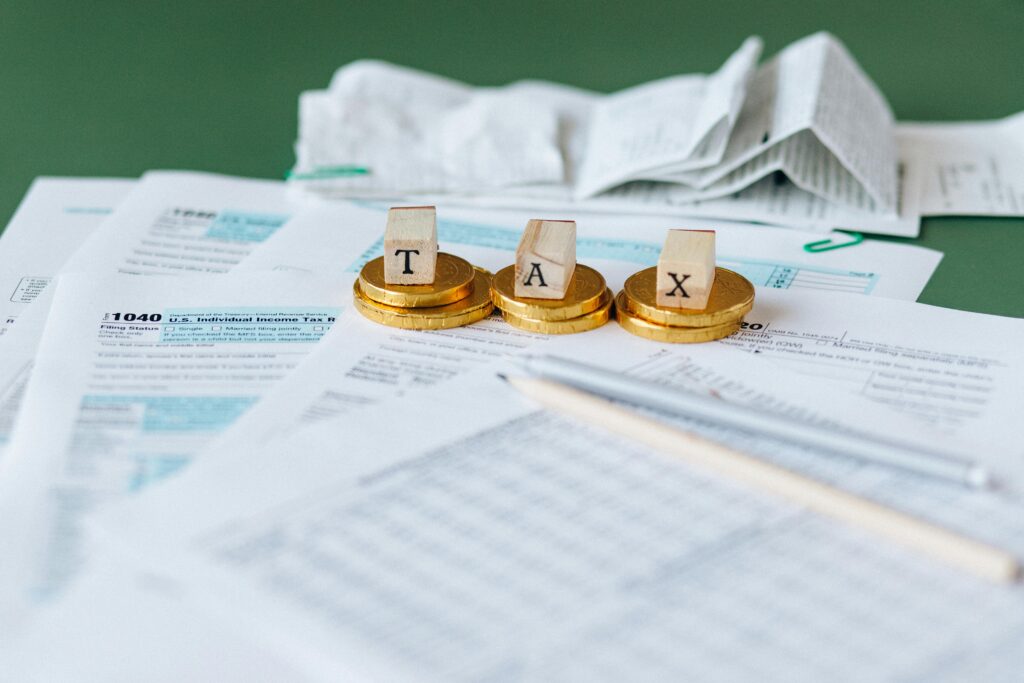
Why is income tax a Game-Changer?
Income tax in Monopoly can be a game-changer because it forces players to make crucial financial decisions that can impact their overall strategy and cash flow. Choosing between the flat $200 fee and 10% of total assets requires careful consideration of your current financial status and plans.
Making the right choice can preserve your cash for important purchases and developments, while a poor decision can deplete your reserves and hinder your progress. Mastering this aspect of the game can provide a significant advantage, turning potential setbacks into opportunities for strategic growth and dominance.
Comparing Income Tax to Other Penalties
In Monopoly, the Income Tax space differs markedly from other penalties like the Luxury Tax and Jail. While the Luxury Tax imposes a flat, unavoidable fee of $75, the Income Tax’s dual-choice nature—opting between a $200 flat fee or 10% of total assets—requires strategic consideration based on one’s financial status.
Unlike the Jail penalty, which can be a minor setback or a strategic advantage depending on timing, the Income Tax space presents a purely financial challenge with no potential upside. This necessity for a calculated decision makes the Income Tax space uniquely impactful, demanding more nuanced engagement and influencing broader game strategies compared to other penalties.
Strategic Decisions: Pay $200 or 10%?
Weighing Your Options
When your token lands in the Income Tax space, you face a critical financial decision. Do you opt for the flat fee of $200, or do you gamble with 10% of your net worth? This choice isn’t merely about current cash on hand but involves a strategic assessment of your overall game position, asset value, and long-term objectives.
When Paying 10% Makes Sense
Opting to pay 10% instead of a flat $200 can be beneficial when your net worth is under $2,000, as the percentage would be less than the flat fee. This strategy is particularly useful early in the game when your assets are minimal and cash flow is crucial for buying properties and investments.
In the mid-game, if cash reserves are low but property holdings are substantial, the 10% payment can be more manageable than $200, preserving cash for other strategic needs.
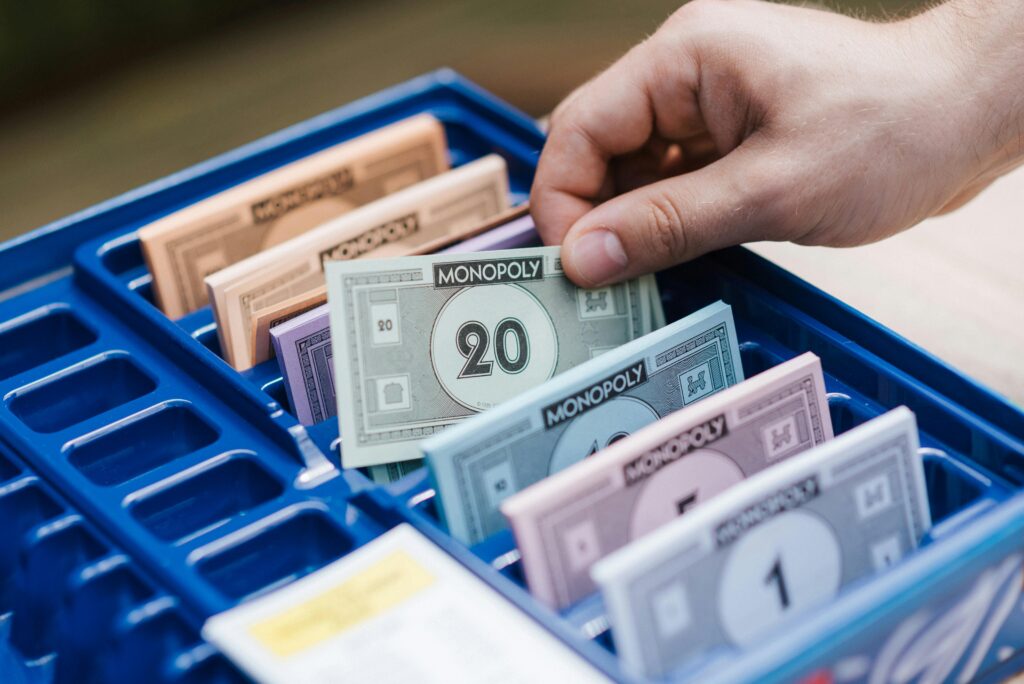
Why $200 Might Be the Safer Bet
Choosing the flat $200 payment is often safer and more predictable, especially if your net worth exceeds $2,000, as 10% could result in a larger financial hit. This option helps maintain robust cash reserves, which are crucial for strategic moves and as a safety net in Monopoly.
The fixed fee allows for better financial planning and reduces the uncertainty associated with calculating 10%, providing a clearer path for managing expenses and avoiding unexpected monetary strains.
Income Tax Strategies: Tips and Tricks
Keep an Eye on Your Net Worth
Regularly calculate your net worth to make informed decisions about the Income Tax payments. This calculation should include all your cash, properties, and buildings. Knowing your net worth helps you decide quickly and accurately whether the flat $200 or the 10% payment is more economical at any given time.
Leverage Timing and Position
Timing your moves and considering your position on the board can influence your decision. For example, if you are approaching the Income Tax space and you have substantial cash reserves but expect to face heavy expenses soon, opting for the $200 flat fee can help conserve cash. Conversely, if you are early in the game and low on cash, the 10% option might be the better route.

Plan for the Unexpected
Monopoly is a game of surprises. From Chance cards to sudden expenses, having a financial buffer is crucial. Sometimes, paying the 10% can save more of your liquid assets for emergencies. Evaluate the broader game context—if you foresee potential high costs in your next few turns, safeguarding your cash might be more valuable than minimizing your tax payment.
Common Mistakes to Avoid
Miscalculating Your 10%
A common mistake in Monopoly is miscalculating the 10% of total assets when landing on the Income Tax space, which can negatively impact liquidity and strategic decisions. Total assets include cash, properties, houses, and hotels, but players often focus only on cash reserves, leading to incorrect assessments.

Ignoring the Long-Term Impact
Neglecting the long-term impact of financial decisions, especially when choosing between paying $200 or 10% of total assets, can be costly in Monopoly. While paying 10% might save cash early on, it becomes increasingly expensive as your wealth grows, draining funds needed for strategic expansions.
Opting for the predictable $200 fee helps manage expenses, preserve liquidity, and capitalize on opportunities. Thus, strategic foresight and accurate net worth assessment are essential to avoid common pitfalls and enhance your chances of winning the game.
FAQs
How to calculate income tax in Monopoly?
Add up your cash, properties, houses, and hotels to get your total assets, then multiply by 0.10 to find 10%. Compare this to the $200 flat fee and choose the lower amount.
How do you pay income tax in Monopoly?
When you land on the Income Tax space, decide whether to pay the flat $200 or 10% of your total assets. Pay the chosen amount to the bank before proceeding with your turn.
What is income tax in Monopoly?
Income tax in Monopoly is a payment required when landing on the Income Tax space, where you choose to pay either a flat fee of $200 or 10% of your total assets.
Where does income tax go in Monopoly?
In Monopoly, income tax payments go to the bank, not to any other players or into a central pot.
Conclusion
understanding and strategically navigating the Income Tax space in Monopoly can significantly impact your success in the game. Whether you choose to pay the flat $200 fee or 10% of your total assets depends on your current financial status, your net worth, and your long-term strategy. By carefully evaluating your options and considering the broader implications of each choice, you can make informed decisions that preserve your cash flow, and support your strategic goals.

